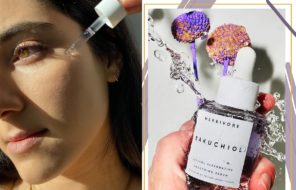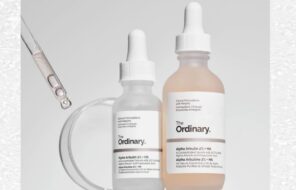If you’ve already looked through our list of the best night creams out on the market, then you’ve seen that I also mention the skin types and concerns each one is best for – and you’ve seen that a ton of them work for all skin types! I still think it’s important to explain the factors that should matter to you when choosing the best night cream, based on your skin type as well as the unique skin concerns you might have.
Before I really get into that, I want to quickly explain the difference between ‘skin type’ and ‘skin concern’ since it might seem like I use the two interchangeably. ‘Skin type’ refers to the amount of oil the skin produces and includes dry, oily, combination, and normal skin.
‘Skin concern’ refers to any specific issue one might want to address, like redness or sensitivity, fine lines, hyperpigmentation, or acne. While those with certain skin types are likelier to experience certain skin concerns, there are many exceptions.
You cannot change your skin type, but you can definitely improve or totally eradicate various skin concerns either with the help of an appropriate skin care routine or with a visit to a dermatologist if the issue is severe.
In this article:
Best Night Creams for Dry Skin
Quick reminder: dry skin is skin that does not produce a sufficient amount of oil for optimal skin functioning. Those with dry skin will usually have smaller pores, and if they don’t moisturize their skin will probably look and feel dry, rough and dull.
If you pick up any random night cream at the store, there is already a 90% chance that it is made with your skin type in mind. Those with dry skin are likelier to seek out different moisturizers for different times of day, which is why brands release more night moisturizers for those with dry skin than they do for any other skin type.
When choosing the best night cream for dry skin, think about what kind of results you would like. If all you need is simple moisturization then any good night cream with a mixture of occlusives (waxes, silicones, and oils) and moisture-binding humectants (glycerin, hyaluronic acid, butylene glycol and panthenol) should do the trick.
You might also love the new generation of night creams formulated with probiotic ingredients like saccharomyces or pitera, which help support the skin’s microbiome and act as wonderful moisturizers. If you’re also interested in targeting or preventing signs of aging, mitigating sensitivity, or treating hyperpigmentation, then jump over to my explanation about night creams for maturing skin.
Best Night Creams for Oily and Acne-Prone Skin
Oily skin refers to skin that produces a lot of sebum (i.e. human oil) throughout the day – more sebum than is cosmetically ideal. Those with oily skin tend to have larger pores and they will usually find that the oils their skin produces make their skin look shiny and maybe a little greasy to the touch.
Those with oily skin are often acne-prone, since sebum is one of the contributing factors to the clogged pores that turn into acne. That being said, the acne formation process is somewhat complex with multiple factors involved, so some people might not experience any breakouts despite having oily skin, while others might experience breakouts despite having dry skin.

The key when you have oily skin and the concerns associated with it is to first of all ensure you choose a night cream that won’t aggravate any issues. Avoiding comedogenic ingredients is key, although it also means knowing which ingredients break you out as an individual.
A lot of oils are actually non-comedogenic (especially oils high in linoleic acid and low in oleic acid like grape seed and sunflower oils), while many people find that fatty alcohols, which are thought to be acne-safe, actually break them out.
The second part is to find night creams with ingredients that will suit your skin!
- Retinol is excellent both for improving skin texture and making pores appear smaller as well as for helping breakouts clear away more quickly.
- Niacinamide is also fabulous because it is reported to have a natural and long-term mattifying effect on the skin when applied topically.
- Anti-inflammatory and antioxidant-rich extracts are fabulous for any skin type, particularly for age prevention, but those with acne-prone skin will find that they help calm down any redness and speed up healing of active breakouts.
- The other ingredients I normally recommend for those with oily and acne-prone skin, like salicylic acid, azelaic acid, witch hazel, tea tree oil, willow bark extract, and benzoyl peroxide are likelier to show up in toners and acne spot treatments than in night creams, but you can absolutely use all three types of products in a single skin care routine!
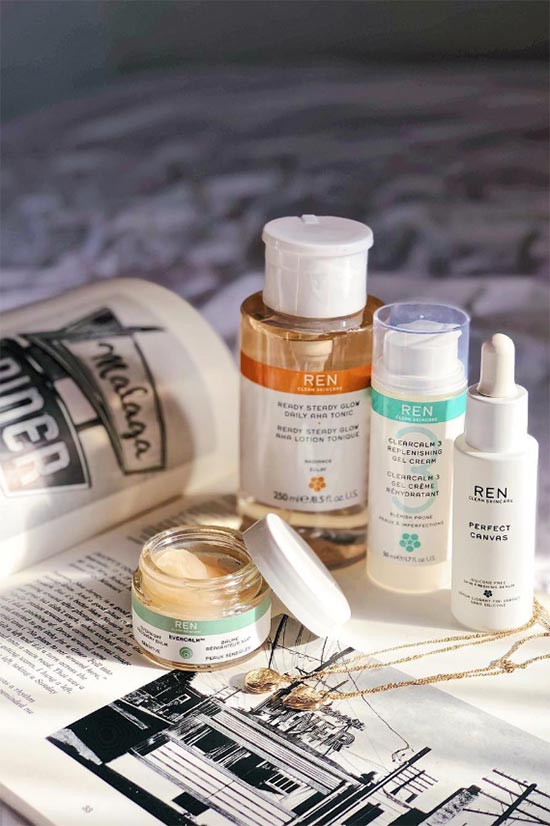
Many folks with oily skin find that they don’t enjoy using most night creams since the texture is too heavy or greasy for them. While there is nothing actually wrong about putting creamy products on your skin even if it’s oily, I understand if you just don’t like how they feel.
Your skin probably doesn’t require as many occlusive ingredients as those with dry skin, so it’s not like you need it. I do mention a few excellent night creams on the list that are lighter in texture and quicker to sink in, although if you opt for a gel lotion or sleeping mask that’s okay too.
Best Night Creams for Normal and Combination Skin
If your skin is neither too oily nor too dry, then you likely have normal skin, while if you find that some parts of your skin get oily, while others get dry than you have combination skin. For both of these skin types there are a ton of night creams to choose from, as you can pick night creams marketed for dry skin as well as night creams recommended for oily skin.
If you don’t have any additional skin concerns beyond simply keeping your skin moisturized and healthy, then any good night cream should work, as long as you like the texture and how it feels on the skin.
However, many people with normal and combination skin can have a variety of concerns, including dealing with signs of aging, acne, hyperpigmentation, sensitivity and more. Read the other sections based on your specific concerns in order to figure out what specific ingredients to look for.
Often the recommendation is to use one type of product on one part of the face and another product on another part of the face, particularly for those with combination skin. Since night creams tend to be on the heavier, more nourishing side of things, you could definitely use a lighter moisturizer or essence all over the face, and then only apply the night cream on the parts of your face that get very dry.
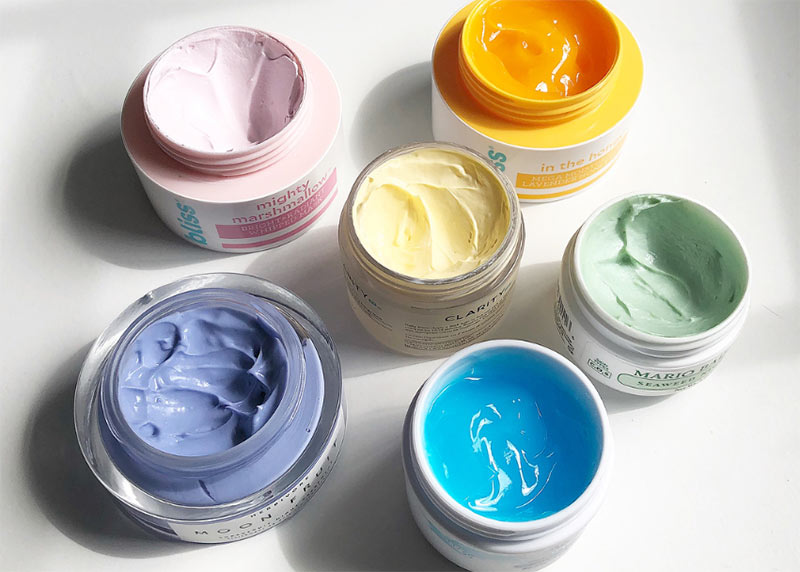
Best Night Creams for Dehydrated Skin
Dehydration refers to lack of water in the skin, and it is a skin concern rather than a skin type. Those with dry skin are very prone to dehydration, since their skin doesn’t produce enough sebum, which naturally locks moisture into the skin, but all skin types can experience dehydration, especially if they use harsh facial cleansers or live in a dry climate.
Dehydrated skin can get flakey or rough, and it is usually missing a certain level of luminosity and plumpness. You can recognize dehydration by very gently squeezing at the apple of your cheek with two fingers, to press the skin together. If your skin gets squeezed into a bunch of tiny folds then you are likely dehydrated, while if it simply juts out a bit without folding then your skin is sufficiently moisturized.
Most night creams are made with water and a blend of both humectants (i.e. hydrators like glycerin, butylene glycol, etc.) and occlusives (silicones, oils, etc.) in order to saturate the skin with moisture as well as prevent its evaporation. If your skin is severely dehydrated, then you can use a night cream on top of a hydrating essence in order to give your skin a double dose of hydration that sinks into the skin more deeply.
There are some night creams that have more of a balm texture. These night moisturizes usually contain very little water, they have more occlusive ingredients than humectants – if you do pick up a night cream like that it is very important to use it in addition to another product that is rich in humectants, otherwise you will deprive your skin of the water that it needs.
Best Night Creams for Fine Lines and Pigmentation
You’ll be hard pressed to find a night cream that doesn’t taut some anti-aging benefits! This is because, no matter the age, using products with anti-aging ingredients can be beneficial. Even those in their teens and ‘20s can benefit from the fortifying and preventative effects of antioxidants!
Quick refreshes: antioxidants neutralize the damage caused by the free radicals that attack the skin due to sun or pollution exposure. They do so by donating electrons to the free radicals, which are basically incomplete molecules with an unpaired electron. There are a ton of phenomenal antioxidants that make their way into night creams, from vitamin E as the most basic to the natural extracts of exotic plants.
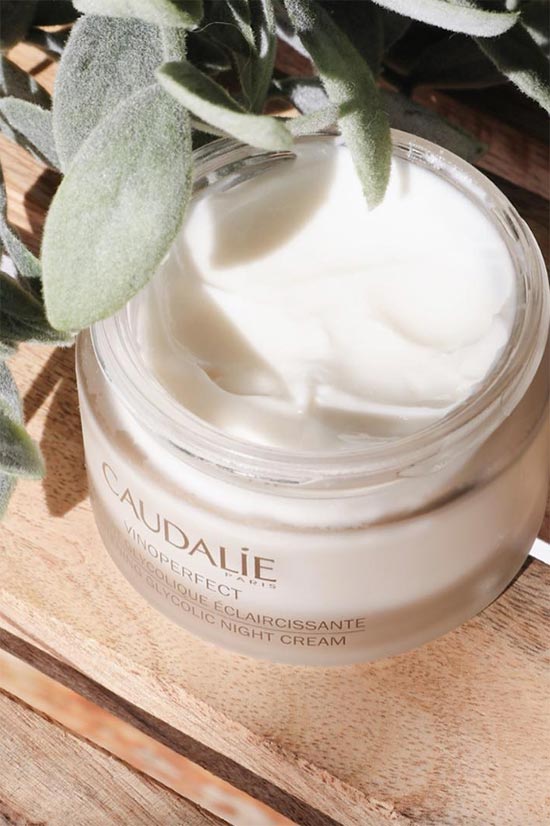
The next class of great anti-aging ingredients includes the powerful actives that resurface the skin to increase cell turnover and improve collagen production. Some of these ingredients also act as chemical exfoliants to slough off dead skin cells.
These ingredients are excellent as preventatives, but they can also somewhat help to fade surface damage like fine lines, uneven skin texture, and hyperpigmentation. These are ingredients like retinol (a.k.a. vitamin A), vitamin C (ascorbic acid), and alpha-hydroxy acid (glycolic or lactic acid). That being said, there is only so much that topical ingredients can do when the skin damage is happening below the epidermis.
There are many other ingredients reported to have similar effects to vitamin A and its friends: licorice root is known as a skin brightener, bakuchiol is becoming popular as a gentle alternative to retinol, and peptides are said to promote collagen and elastic production in the skin.
These ingredients are much less likely to cause irritation to the skin and they can be used on a more regular basis than the more aggressive ingredients. However, their effects have not been as rigorously tested yet, so while they are certainly promising, they are not in the realm of “magic ingredients” quite yet.
Now, even if you find the most amazing anti-aging night cream, please make sure that your skin is protected from the sun’s rays during the day! Even the very best night cream won’t be of much help if your face is being subjected to the aging effects of UVA and UVB rays throughout the daytime.
Best Night Creams for Sensitive Skin
Those with sensitive skin that is either always a little red or can become irritated and flushed at the slightest provocation, do have to be a little more careful when choosing their night creams.
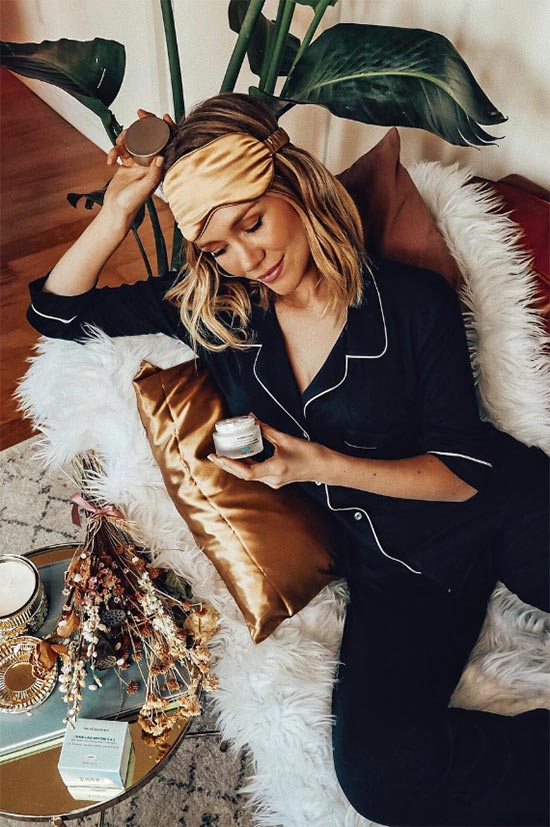
People with sensitive skin will find that the triggers are very individualized, so getting samples and patch testing products for at least a few days is very important. While generally people with sensitive skin are likelier to have bad reactions to strong actives, certain surfactants and fragrances, what might irritate one person will be the exact ingredient that totally clears up another person’s skin.
However, here are some tips that will help you find a night cream that will likely work for you. It is best to go for night creams with shorter ingredients lists, as this means fewer things that will likely trigger or irritate your skin. Common moisturizer ingredients including most humectants, emollients, and silicones are for the most part unlikely to cause irritation to the skin, and will in fact help to fortify your skin and increase its barrier capabilities.
Denatured alcohol, fragrances, and strong actives like retinol and AHA are potential irritators, on the other hand – you don’t have to avoid them altogether, since reactions are so individualized, but do be cautious.
Beyond that, look for anti-inflammatory ingredients that will help keep your skin soothed. The extracts of calendula, green tea, centella asiatica extract, beta-glucan, and willow bark are a few well known natural anti-inflammatories you can look for.
Photos via @janicejoostemaa, Instagram


